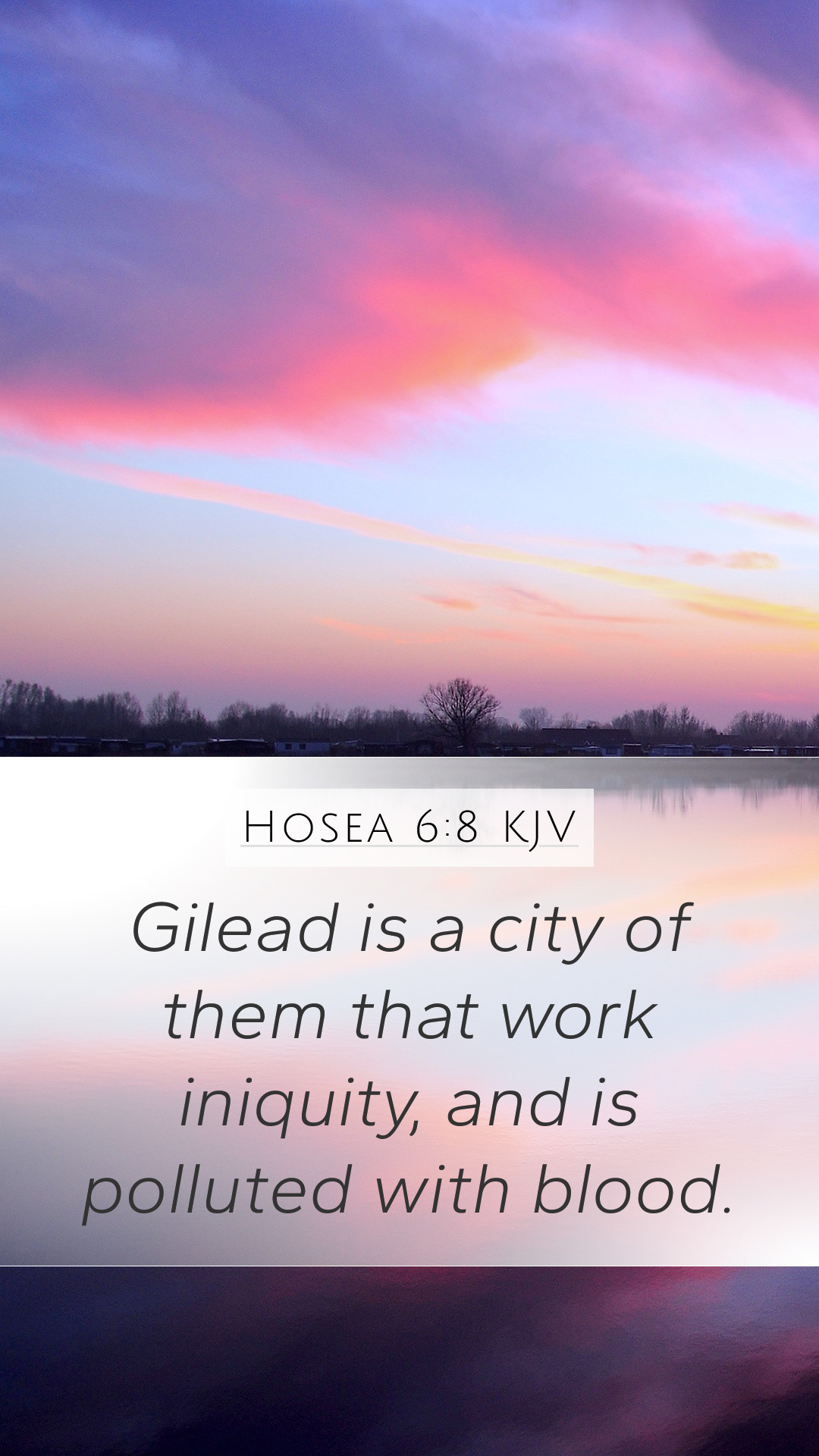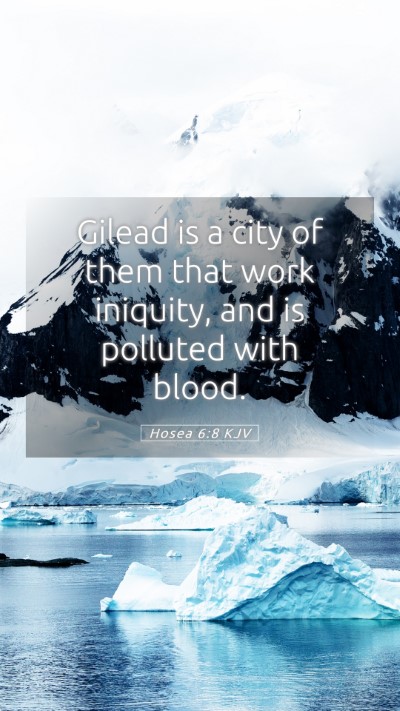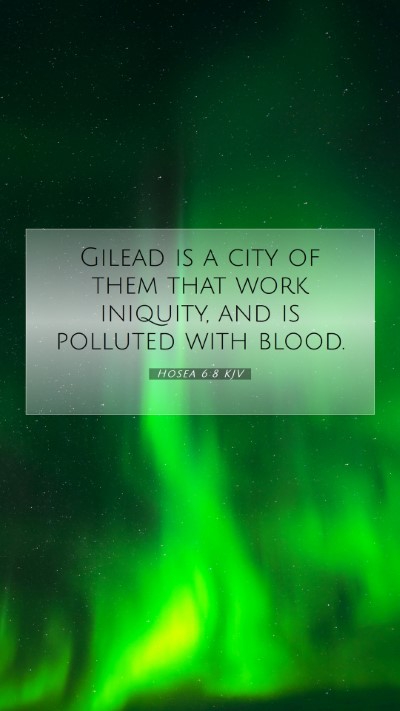Old Testament
Genesis Exodus Leviticus Numbers Deuteronomy Joshua Judges Ruth 1 Samuel 2 Samuel 1 Kings 2 Kings 1 Chronicles 2 Chronicles Ezra Nehemiah Esther Job Psalms Proverbs Ecclesiastes Song of Solomon Isaiah Jeremiah Lamentations Ezekiel Daniel Hosea Joel Amos Obadiah Jonah Micah Nahum Habakkuk Zephaniah Haggai Zechariah MalachiHosea 6:8 Meaning
What is the meaning of Hosea 6:8?
Gilead is a city of them that work iniquity, and is polluted with blood.
Hosea 6:8 Bible Verse Meaning
Bible Verse Meaning of Hosea 6:8
Hosea 6:8: “Gilead is a city of them that work iniquity, and is polluted with blood.”
Introduction to the Verse
This verse from the book of Hosea addresses the sinful state of Israel, particularly highlighting the city of Gilead as a representation of corruption and violence. The prophets, including Hosea, often used metaphorical language to illustrate the moral and spiritual decline of the nation.
Biblical Exegesis and Interpretation
According to public domain commentaries, understanding the meaning of Hosea 6:8 requires a deep dive into both the historical context and the symbolic significance of the city of Gilead.
Historical Context
Gilead was a region known for its medicinal balm and was often associated with healing. However, Hosea contrasts this image with the moral corruption prevalent in its cities. The verse suggests that while Gilead may have strategic significance and resources, its spiritual condition is dire due to rampant iniquity.
Theological Insights
- Matthew Henry's Commentary: Henry emphasizes the theme of hypocrisy, suggesting that the people of Gilead, despite their heritage and potential, were deeply entrenched in sin. This reflects a broader message about God’s displeasure with outward appearances not aligning with inward righteousness.
- Albert Barnes' Notes: Barnes notes that Gilead's blood pollution symbolizes grave sins committed, particularly against the innocent, thereby calling God’s judgment upon the people. It signifies a weakness in societal justice, where prosperity comes at the cost of moral integrity.
- Adam Clarke's Commentary: Clarke points out the significance of bloodshed and iniquity, correlating them with the consequences of forsaking God's covenant. He stresses the need for repentance and the return to God as a remedy for their plight.
Lessons and Applications
This verse serves as a pivotal reminder for modern readers to examine their own lives and societies for spiritual corruption and moral decay. The significance of blood, in this context, goes beyond physical violence to include any act that violates the divine law established by God.
Applying the Verse to Daily Life
As individuals seek to understand Scripture, it’s essential to reflect on personal and communal righteousness. This reflection encourages believers to address injustices and to seek healing not only in their lives but within their communities.
Cross-References
- Isaiah 1:15-17: Discusses God's discontent with the empty rituals of worship while ignoring the weightier matters of justice.
- Jeremiah 22:17: Condemns those who seek gain through violence and destruction.
- Matthew 23:27-28: Relates to the idea of hypocritical appearances, likening the religious leaders to whitewashed tombs.
Conclusion
In conclusion, Hosea 6:8 serves as a critical prompt for both individual reflection and collective societal examination. The implications of this verse resonate across time, reminding us that true worship and living in accordance with God’s commands go hand in hand with justice, mercy, and faithfulness. For those engaging in Bible study lessons or looking for Bible verse explanations, this passage invites deep contemplation about the integrity of our actions versus our appearances.
Additional Resources
- Bible Study Tools: Utilize commentaries and study guides to explore similar passages.
- Online Bible Study: Join groups focused on prophetic texts for communal insights.
- Bible Study Courses: Consider in-depth courses that tackle Old Testament prophecies and their relevance.
This content, along with additional insights from well-known Bible verse commentators, contributes to a more profound understanding of Scripture, particularly for those exploring the complexities and the relevancy of biblical texts in today’s world.


